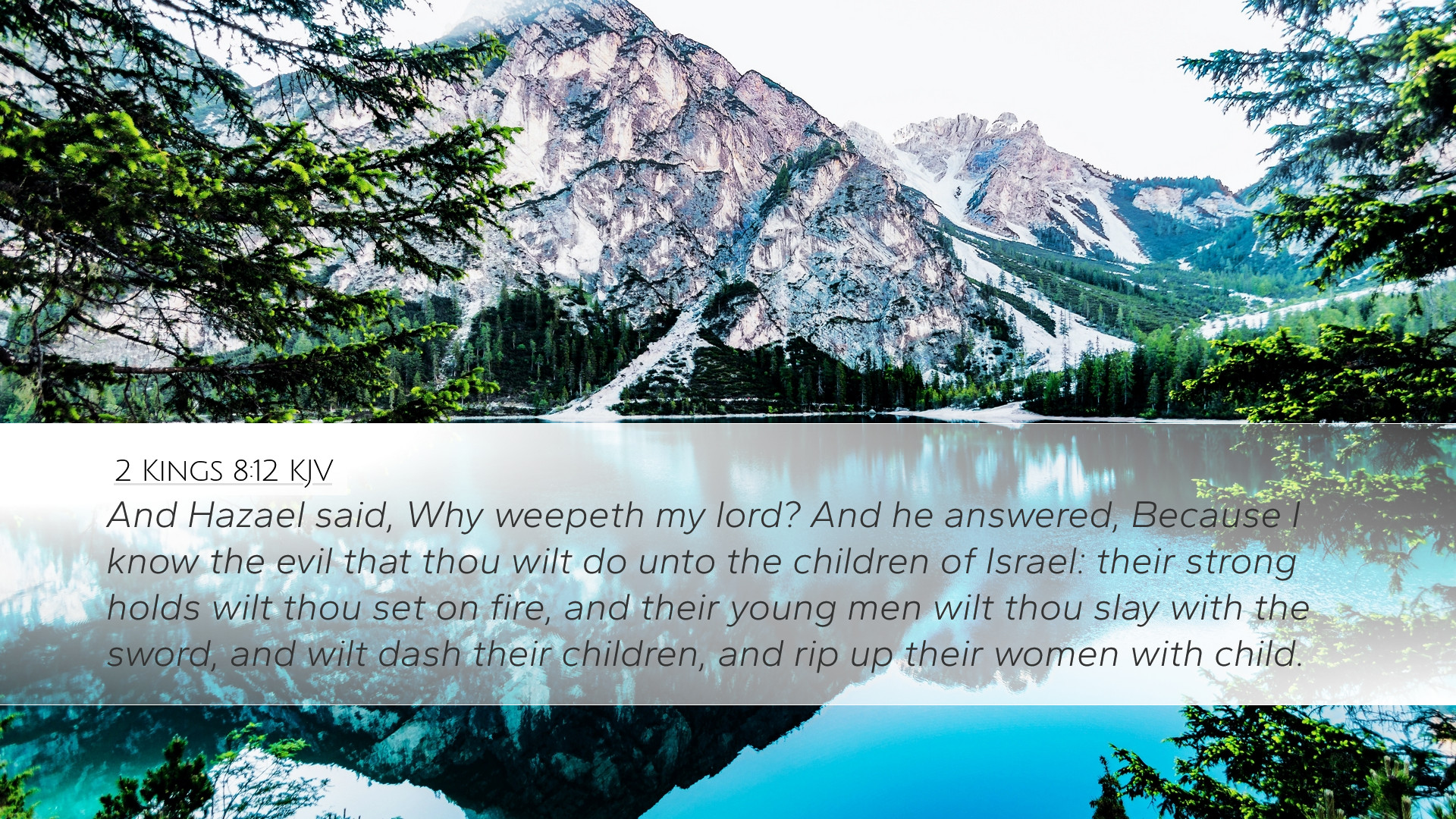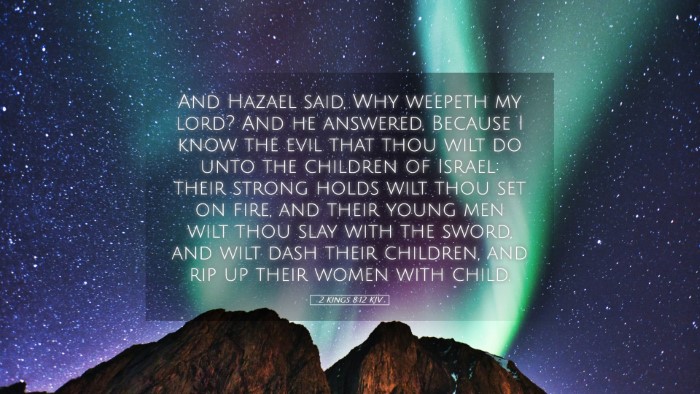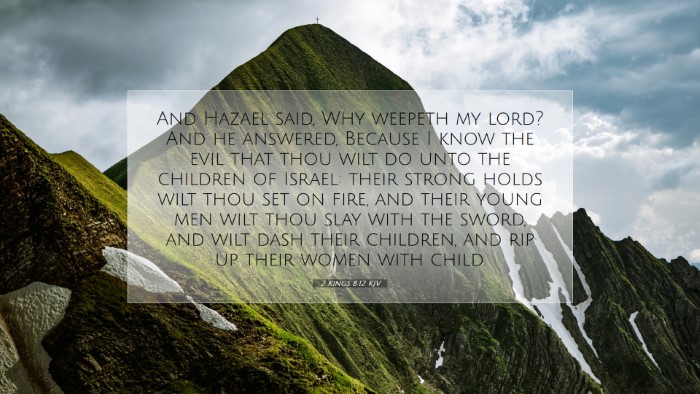Commentary on 2 Kings 8:12
Verse: "And Hazael said, Why weepeth my lord? And he answered, Because I know the evil that thou wilt do unto the children of Israel: their strong holds wilt thou set on fire, and their young men wilt thou slay with the sword, and wilt dash their children, and rip up their women with child."
Introduction
The passage of 2 Kings 8:12 presents a profound and unsettling prophecy concerning Hazael, who would ascend to power as king of Syria. This moment reflects the turmoil and violence that would characterically shape Israel's history during this period. The depth of emotion expressed by Elisha, as he reveals the impending doom to Hazael, invites further contemplation on the themes of divine foreknowledge, the consequences of sin, and the heartbreak of prophetic ministry.
Insights from Commentaries
Emotional Prophecy - Matthew Henry
Matthew Henry observes that the opening of this passage reveals Elisha's sorrow and divine insight. Elisha's grief sheds light on the weight of prophetic calling, as the prophet is tasked with revealing hard truths. Henry emphasizes that Hazael's wickedness—manifested through violence and oppression—marks a significant turning point in Israel’s history. This moment highlights the prophetic implication that sin has dire repercussions not only for the individuals involved but also for the broader community.
The Nature of Hazael - Albert Barnes
Albert Barnes, in his exposition, elaborates on Hazael's character. He argues that Hazael's question, "Why weepeth my lord?" is both a moment of curiosity and a facade. He may demonstrate a pretense of innocence while harboring the ambition that led him to plot against his king, Benhadad. Barnes suggests that the prophecy serves as a warning, reflecting the nature of human ambition when married to malice. By understanding Hazael’s mindset, readers gain insight into the psychological warfare that exists even within close political spheres.
The Tragedy of Israel - Adam Clarke
Adam Clarke offers a critical examination of the implications of Elisha's warning. His interpretation focuses on the tragic outcomes foretold: the destruction of "strong holds," slaughtering of "young men," and the horrific acts against families. Clarke emphasizes the desolation that conflict brings to a society, and his reflections resonate with the contemporary reader experiencing similar tragedies in modern contexts. The vivid imagery used by Elisha serves to remind audiences of the physical and spiritual devastation that accompanies sin and rebellion against God.
Theological Reflections
This verse raises several points for theological reflection:
- Prophetic Burden: Elisha exemplifies the heart of a true prophet, one who embodies sorrow for impending judgment. His tears symbolize God’s lament over sin and its consequences.
- Divine Sovereignty: The foretelling of Hazael’s violence speaks to God's sovereignty over history. While Hazael intends harm, God uses this as part of His divine plan for Israel's purification.
- Human Responsibility: Hazael’s deliberate choices illustrate that while God knows the outcome, human decisions remain vital. As believers, the call to ethical living and integrity is imperative.
- Impact of Leadership: The upcoming turmoil is directly linked to leadership. It serves as a reminder that leaders are accountable for their actions, influencing the lives of many.
Conclusion
In conclusion, 2 Kings 8:12 serves as a stark reminder of the complex interplay of prophecy, human ambition, and the resulting consequences. Through the lens of careful study, we glean that the role of the prophet is not merely to foretell future events but to engage in the lament of God for His people. As pastors, students, theologians, and scholars reflect on this passage, may they be compelled to understand the weight of prophetic truths and the heart of God in the face of humanity's choices.


